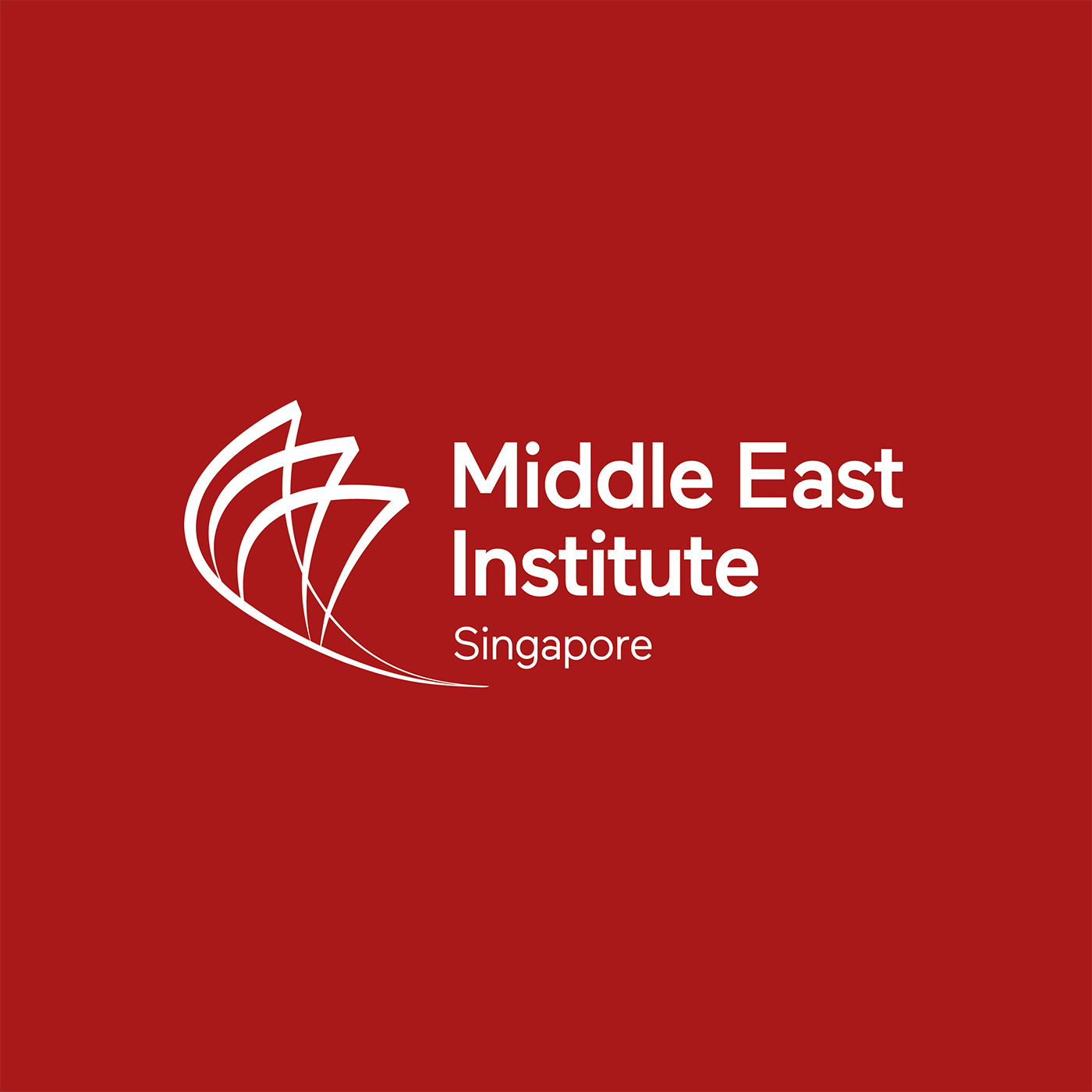Episodes
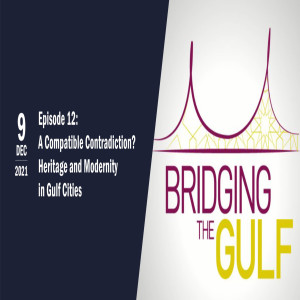
Thursday Dec 23, 2021
Thursday Dec 23, 2021
The bulldozers are here. This time, they are here for Jebel Ali – the region’s first major shipping hub and dry dock located in Dubai. Like many other built relics in the Gulf, including the coral stone homes of Dubai’s rulers along its famous saltwater creek, these buildings were razed to make way for more modern structures. This is the story of the meteoric rise of Gulf cities – most of them were once sleepy pearling towns but they now embrace soaring skyscrapers and megamalls. Beyond the superlatives (the “tallest”, the “biggest”, the “most expensive” etc.), sociocultural anthropologist Sulayman Khalaf writes that Gulf architecture is not created in isolation. Rather, constituents of urbanisation, Arab/Muslim identity and the oil political economy all form a dynamic interplay in city planning. How then can we describe Gulf architecture? Consumerist? Modernist? Where does the notion of heritage fit in? Does the import of Western technical knowledge erase local khaleeji urbanism?
MEI (NUS) has had the pleasure to host the co-editors of the volume, Urban Modernity in the Contemporary Gulf, to examine the Gulf’s engagement with architectural modernism over the decades. This discussion also aims to address the nature of the relationship between the built environment and Gulf societies.
For more information about this event, click here: https://mei.nus.edu.sg/event/bridging-the-gulf/
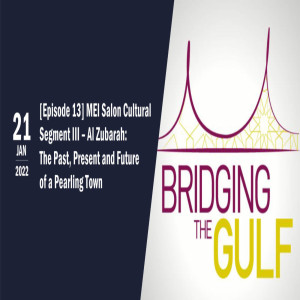
Monday Jan 24, 2022
Monday Jan 24, 2022
Added to the UNESCO World Heritage List in 2013, the Al Zubarah Archaeological Site is Qatar’s first entry in this international register. Once a thriving pearl fishing and trading port in the 1760s, the Al Zubarah site showcases impressive, excavated findings. These include a city wall, ancient residential palaces and structures typical of an urban centre – including markets, living and industrial areas. Stretching from Fort Zubarah lining the coast to the early inland settlement of Qal’at Murair, the site provides a reimagination of a Gulf merchant town in the 18th and 19th centuries.
Middle East Institute, NUS, in collaboration with the Qatar Embassy in Singapore, will welcome Dr Ferhan from Qatar Museums to take our audience on a virtual tour of Al Zubarah. Beyond nostalgia, the speaker will also share his knowledge about contemporary uses of the Zubarah Fort, for instance.
This public talk was conducted online via Zoom on Friday, 21 January 2022, from 2.00 pm to 3.00 pm (SGT).
For more information about this event, click here: https://mei.nus.edu.sg/event/bridging-the-gulf/
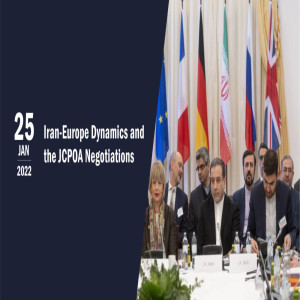
Wednesday Jan 26, 2022
Iran-Europe Dynamics and the JCPOA Negotiations
Wednesday Jan 26, 2022
Wednesday Jan 26, 2022
Against the backdrop of the JCPOA negotiations, this webinar will explore the inherent dynamics between Iran and the European Union (EU). It is notable that since the start of the Iranian nuclear controversy about two decades ago, the EU has been steadfastly mediating between Iran and the US, an effort that has continued till today. Therefore, through our discussion, we seek to find answers to questions such as EU’s motivation behind its central role in the nuclear negotiations, the nature of Iran-EU relations and what does the EU foresee Iran’s role in the Middle East to be, as well as its own – specifically in the wake of the gradually receding role of the US in the region.
This public talk was conducted online via Zoom on Tuesday, 25 January 2022, from 4.00 pm to 5.30 pm (SGT).
For more information about this event, click here: https://mei.nus.edu.sg/event/iran-europe-dynamics-and-the-jcpoa-negotiations/
![[Boots Off the Ground: Security in Transition in the Middle East and Beyond] Episode 22: Glass Ceiling and Private Security Regulations](https://pbcdn1.podbean.com/imglogo/ep-logo/pbblog4563756/BOTG-LOGOArtboard_300x300.png)
Thursday Jan 27, 2022
Thursday Jan 27, 2022
In this episode, Mr Callum Watson discusses about glass ceiling and private security.
This podcast series is presented by Dr Alessandro Arduino, Principal Research Fellow at the Middle East Institute, National University of Singapore.
![[Book Discussion] Routledge Handbook on China-Middle East Relations](https://pbcdn1.podbean.com/imglogo/ep-logo/pbblog4563756/27Jan22_TITLE_thumbnail_300x300.jpg)
Friday Feb 04, 2022
[Book Discussion] Routledge Handbook on China-Middle East Relations
Friday Feb 04, 2022
Friday Feb 04, 2022
The handbook brings together a mix of established and emerging international scholars to provide valuable analytical insights into how China’s growing Middle East presence affects intra-regional development, trade, security and diplomacy.
As the largest extra-regional economic actor in the Middle East, China is the biggest source of foreign direct investment into the region and the largest trading partner for most Middle Eastern states. This portends a larger role in political and security-related affairs as the value of Chinese assets, combined with a growing expatriate population in the region, demands a more proactive role in contributing to regional order. Exploring the effect of these developments, the expert contributors also consider the reverberations in great power politics as the US, Russia, India, Japan and the European Union also have considerable interests in the region.
This public talk was conducted online via Zoom on Thursday, 27 January 2022, from 4.00 pm to 5.00 pm (SGT). For more information about this event, click here: https://mei.nus.edu.sg/event/book-discussion-routledge-handbook-on-china-middle-east-relations/
![[Boots Off the Ground: Security in Transition in the Middle East and Beyond] Episode 23: Russian Power Projection on the Cheap? Russian Private Military Companies’ Implications for Global Security](https://pbcdn1.podbean.com/imglogo/ep-logo/pbblog4563756/BOTG-LOGOArtboard_300x300.png)
Monday Feb 28, 2022
Monday Feb 28, 2022
In this episode, Dr Tor Bukkvoll discusses The Wagner Group and Russian private military companies from Ukraine to Syria – the emergence of a new tool of clandestine warfare.
This podcast series is presented by Dr Alessandro Arduino, Principal Research Fellow at the Middle East Institute, National University of Singapore.
For more information on this episode, click here: https://mei.nus.edu.sg/event/boots-off-the-ground-security-in-transition-in-the-middle-east-and-beyond-episode-23-russian-power-projection-on-the-cheap-russian-private-military-companies-implications-for-global-security/
![[Boots Off the Ground: Security in Transition in the Middle East and Beyond] Episode 24: Walking on Thin Ice – Chinese Private Security Sector in Complex Environments](https://pbcdn1.podbean.com/imglogo/ep-logo/pbblog4563756/BOTG-LOGOArtboard_300x300.png)
Wednesday Mar 30, 2022
Wednesday Mar 30, 2022
In this episode, Dr Zhou Zhanggui discusses about the Chinese private security sector in highly complex environments.
This podcast series is presented by Dr Alessandro Arduino, Principal Research Fellow at the Middle East Institute, National University of Singapore.
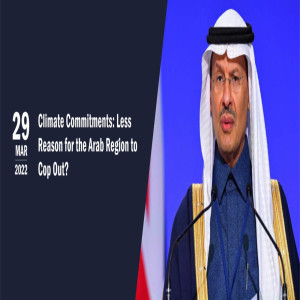
Wednesday Mar 30, 2022
Climate Commitments: Less Reason for the Arab Region to Cop Out?
Wednesday Mar 30, 2022
Wednesday Mar 30, 2022
The last Conference of the Parties (COP 26), held under the United Nations Framework Convention on Climate Change (UNFCCC), finalised the “rulebook” for implementing the 2015 Paris Agreement. Its tagline, “from ambition to action,” will be examined through the lens of the next two COP meetings – COP27 and COP28 – hosted by Egypt and the United Arab Emirates, respectively. Given the varying impacts of climate change across regions, the Paris Agreement recognised that there is no one-size-fits-all approach. Both the UAE and Egypt have been working with the United States to roll out further initiatives: The US-UAE venture aims to make agriculture resilient to climate change, while Egypt’s joint press release with the US stressed the need for “Implementation…Plus” which includes carrying through on existing commitments. These projects will give further importance to the Arab COPs globally, especially in the lead-up to COP28 under the Emirati presidency, where the first round of global stocktake is due to take place.
Can COP 27 and COP 28 serve as outlets for the Arab region to highlight their unique climate challenges? To what extent will the Arab countries’ position differ? Will there be an increase in regional climate cooperation? In particular, will the two COPs create Arab-African tensions? How much further along the road to action will Arab countries be pushed?
The Middle East Institute, in collaboration with the Arab Gulf States Institute in Washington (AGSIW), will host a panel to tackle these and other questions.
This public talk was conducted online via Zoom on Tuesday, 29 March 2022, from 8.00 pm to 9.30 pm (SGT) / 8.00 am to 9.30 am (Washington DC time).
For more information about this event, click here: https://mei.nus.edu.sg/event/climate-commitments-less-reason-for-the-arab-region-to-cop-out/
![[Boots Off the Ground: Security in Transition in the Middle East and Beyond] Episode 25: Russian Mercenaries a Weak Link in Great-Power Competition](https://pbcdn1.podbean.com/imglogo/ep-logo/pbblog4563756/BOTG-LOGOArtboard_300x300.png)
Thursday Apr 28, 2022
Thursday Apr 28, 2022
In this episode, Dr Molly Dunigan discusses how Russia’s use of mercenaries exposes what may be critical vulnerabilities in the Russian will to fight and in Russian state power.
This podcast series is presented by Dr Alessandro Arduino, Principal Research Fellow at the Middle East Institute, National University of Singapore.
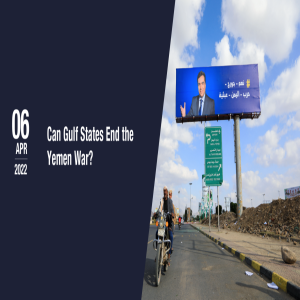
Friday Apr 29, 2022
Can Gulf States End the Yemen War?
Friday Apr 29, 2022
Friday Apr 29, 2022
As all eyes are turned towards Ukraine, a long-neglected conflict in the Middle East is entering its eighth year. Started in March 2015, the Yemen war was initially supposed to be a short and limited intervention led by Saudi Arabia. Today, despite several failed diplomatic initiatives, there is no end in sight. Beyond the humanitarian tragedy for Yemen, the war has turned into the epicenter of regional rivalries, as reflected by Iran’s support to the Houthi rebels, the proliferation of ballistic missiles launched from Yemen to Saudi Arabia, the redeployment of terrorist organisations such as Al Qaida and the Islamic State into Yemen’s ungoverned areas. Moreover, the inability of the Gulf states to succeed militarily in Yemen exacerbated tensions and frustrations with their main Western partner, the US. Against that backdrop, this webinar will discuss the latest developments in the Yemen war and their broader implications for the region – be it in terms of terrorism trends, Gulf-Iran relations or US security policy towards the Middle East.
This public talk was conducted on Wednesday, 6 April 2022.
For more information about this event, click here: https://mei.nus.edu.sg/event/can-gulf-states-end-the-yemen-war/

